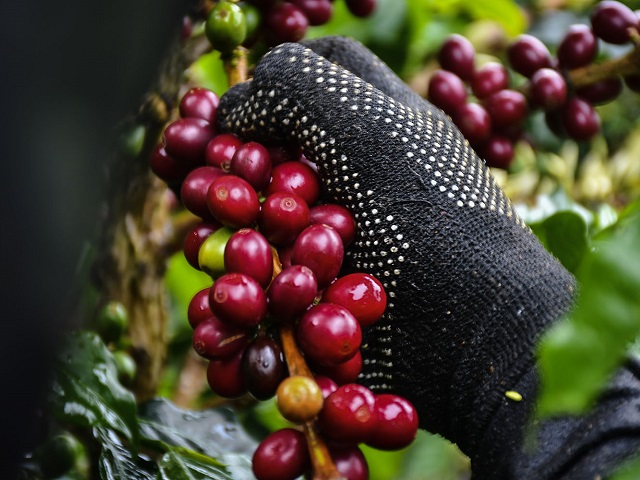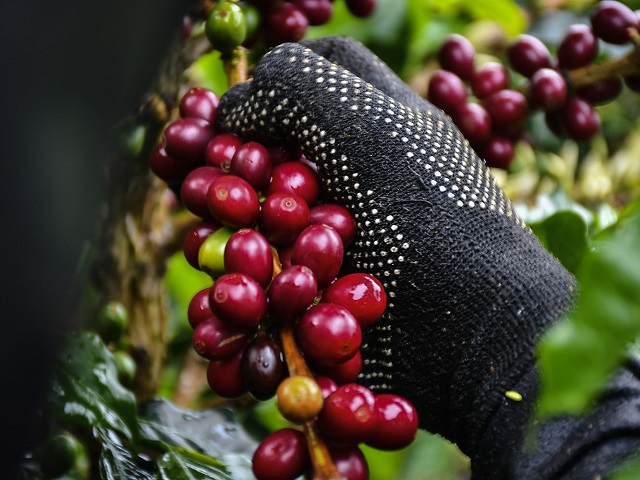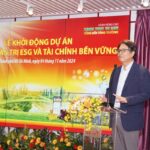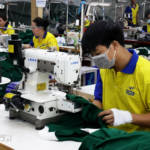EU Market Overview and New ESG Requirements for the Coffee Industry
With the adoption of new environmental, social, and governance (ESG) policies in the EU, the European Union Deforestation Regulation (EUDR) was passed in December 2022 and was initially expected to come into force on December 30, 2024. However, in October 2024, the EU proposed postponing the implementation until December 30, 2025, for large companies and June 30, 2026, for small and medium-sized enterprises (SMEs).
The EUDR requires companies to prove that their products do not originate from deforested areas after December 31, 2020, and comply with the regulations of the producing country. Violations of the EUDR can result in financial penalties of up to 4% of annual revenue and reputational damage.
According to Mintel, nearly 64% of new coffee products launched in Europe feature environmental or ethical claims. European consumers are increasingly willing to pay a premium for coffee with clear origins and sustainability certifications.
Löfbergs, one of the world’s largest organic coffee importers in Sweden, has switched to fossil-fuel-free ocean shipping, reducing 1,800 tons of CO2 emissions annually. Similarly, Schneider Electric has launched the “Zero Carbon Project” aiming to reduce carbon emissions by 50% from its 1,000 top suppliers by 2025, while also supporting suppliers in setting emission reduction targets and sharing best practices. IKEA has invested over $1.1 billion in building a sustainable supply chain, including the use of renewable energy, recycling, and biomass, to minimize environmental impact and stabilize costs.
Current Position and Advantages of Vietnamese Coffee Businesses in the EU
Vietnam is the world’s largest producer and exporter of Robusta coffee. In 2023, Vietnam was the EU’s second-largest coffee supplier by volume and the third-largest by value, exporting 652,000 tons of coffee worth $1.66 billion. Vietnam’s market share in the EU’s total coffee imports increased from 14.9% in 2022 to 16.1% in 2023.
According to updated data from Eurostat, in the first nine months of 2024, the EU’s coffee imports reached nearly €15.9 billion (equivalent to $16.5 billion), a 9.5% increase compared to the same period in 2023. The import growth rate of coffee from Vietnam to the EU was recorded at 25.5%, reaching €1.60 billion (equivalent to $1.67 billion). Vietnam’s market share in the EU’s total coffee imports increased from 8.8% in the first nine months of 2023 to 10% in the same period in 2024.
Traditional advantages of Vietnamese coffee include low prices and high yield. However, with the increasing ESG and EUDR requirements, these advantages may no longer be sufficient for competition. Vietnamese businesses need to transition to sustainable production to meet the demands of the EU market and maintain their market share. Compliance with ESG standards and sustainability certifications such as Rainforest Alliance and EUDR improves product quality, enhances brand value, and creates growth opportunities in demanding markets like the EU. The EVFTA agreement reduces import tariffs to 0% and protects geographical indications for Buon Ma Thuot coffee, enhancing the competitiveness of Vietnamese coffee in the EU.

Illustrative image.
|
Is “Zero Carbon Coffee” Becoming a Trend?
“Zero Carbon Coffee” aims to minimize carbon emissions throughout the production and distribution process. To achieve this goal, businesses need to adopt low-carbon production, transportation, and distribution methods, including the use of renewable energy, carbon capture and storage, and reforestation.
Globally, initiatives such as the Net-Zero Standard are being used to measure and certify carbon neutrality. For example, “zero carbon coffee” has achieved Climate Neutral Certification from Climate Neutral, an independent non-profit organization that provides carbon neutrality certification for businesses by measuring carbon emissions, purchasing carbon credits to offset emissions, and implementing future emission reduction plans.
Starbucks, the world’s largest coffee chain, is working towards carbon-neutral coffee by protecting and restoring forests and supporting farmers in using precision agricultural tools to minimize environmental impact.
In Vietnam, some businesses like Tám Trình and Simexco have started transitioning to sustainable production. Simexco implements sustainability certification programs such as Rainforest Alliance and 4C, while also complying with EUDR standards. Cooperatives in Lam Dong province are also moving towards sustainable coffee production but require additional technological and financial support to obtain international certifications.
While the “Zero Carbon Coffee” model is still novel in Vietnam, with limited information and initiatives primarily driven by personal motivation or brand-building strategies, it is gaining attention from businesses. To bring about significant change, the Vietnamese coffee industry needs time and substantial investment.
Is Vietnamese Coffee Ready for the “ESG Game”?
Adopting sustainable production methods like agroforestry helps protect the environment and enhance the climate resilience of coffee farms. Agroforestry can diversify farmers’ incomes, improve soil quality, and produce coffee with richer flavors. Additionally, support from the government and international organizations in building databases and traceability technology enhances Vietnam’s competitiveness in the international market.
| Agroforestry is a sustainable agricultural production method that combines the cultivation of agricultural crops (such as coffee) with forestry or other types of plants. This model helps protect and improve soil quality, increases biodiversity, and creates a stable ecosystem. |
According to a Sustainalytics report, only 30% of Vietnamese businesses have comprehensive ESG reporting, while the remaining 70% lack sufficient or standardized information. SMEs face challenges in accessing finance and technology to transition to sustainable production models. The initial costs of adopting green technology and obtaining sustainability certifications are high, leading many SMEs to view ESG compliance as a burden rather than an opportunity.
Impacts on farmers and supply chains also pose significant challenges. Farmers need support to adopt sustainable production methods, but a lack of information and resources hinders this process. Government and international organization support is crucial to help farmers and SMEs overcome these difficulties and meet the stringent ESG requirements.
What Needs to be Done to Maintain Market Share in the EU?
To maintain market share in the EU, Vietnamese coffee businesses need strong support from the government and industry associations like the Vietnam Coffee-Cocoa Association (VICOFA). Some proposed solutions include:
Green Finance Mechanisms: International financial institutions, banks, and credit organizations should provide preferential loans or financial support to businesses transitioning to sustainable production. This would reduce financial burdens and encourage investment in green technology and sustainable agriculture.
Carbon Credits: Implement a carbon credit system to incentivize carbon emission reductions throughout the supply chain. Businesses would be allocated a certain amount of carbon credits, which they could trade on the market to offset excess emissions.
Transition Support: Provide technical and technological support from international and industry organizations to help businesses meet ESG standards. This includes building databases for coffee growing locations, supporting traceability, and adopting low-carbon production technologies.
Prospects and Reference Models
While there is no officially published national plan for EUDR compliance, Vietnam is taking specific actions such as building traceability databases for coffee and closely collaborating with international organizations. These efforts prepare the Vietnamese coffee industry to meet the EU’s stringent environmental requirements and maintain market share in the evolving international market.
Compliance with EUDR helps Vietnam maintain its coffee market share in the EU, creating opportunities for sustainable growth and enhancing export value and industry sustainability. The successful model in Brazil can be referenced, where they have adopted low-carbon coffee production methods certified by international organizations.
MonteCCer, a coffee cooperative in Brazil, sells carbon-neutral Arabica coffee at a premium of 100 reais (approximately $17.89) per bag compared to conventional coffee. Their coffee is produced in the Cerrado region, where farms reduce carbon emissions and hold carbon-neutral certifications.
[1] https://evea-conseil.com/en/news/article/eudr-european-deforestation-regulation
[2] https://www.cbi.eu/market-information/coffee/tips-become-eudr-compliant
[3] https://www.live-eo.com/article/eudr-non-compliance-penalties
[4] https://www.mintel.com/press-centre/coffee-conscience-half-of-all-global-coffee-launches-are-sustainable/
[5] https://www.worldcoffeeportal.com/Latest/News/2024/February/Lofbergs-reduces-carbon-footprint-with-100-fossil
[6] https://www.environmental-finance.com/content/awards/sustainable-company-awards-2022/winners/supply-chain-initiative-of-the-year-global-schneider-electric.html
[7] https://vietnamnews.vn/economy/1653505/viet-nam-eu-s-second-biggest-coffee-supplier-in-2023.html
[8] https://vietnamagriculture.nongnghiep.vn/the-european-coffee-market-reaching-4788-billion-in-2024-d381164.html
[9] https://moit.gov.vn/upload/2005517/fck/files/B___n_tin_Th____tr_____ng_NLTS_T___ng_h___p_qu___VI_ra_ng__y_30_12_2024_9b5fe.pdf
[10] https://www.koltiva.com/post/turning-challenges-into-opportunities-vietnam-s-coffee-industry-gears-up-for-eudr-regulation-compli
[11] https://asemconnectvietnam.gov.vn/default.aspx?ID1=2&ZID1=8&ID8=140658
[12] https://www.balmforthandco.co.uk/how-to-support-carbon-zero-coffee/
[13] https://www.comunicaffe.com/zero-carbon-coffee-has-officially-achieved-climate-neutral-certified-status/
[14] https://sustainabilitymag.com/supply-chain-sustainability/starbucks-the-journey-to-carbon-neutral-green-coffee
[15] https://asianfarmers.org/vietnam-vnfu-sustainable-coffee-production-in-lam-dong-province/
[16] https://incofin.com/womens-day-spotlight-how-ngoc-anh-dao-is-transforming-vietnams-coffee-sector/
[17] https://www.koltiva.com/post/turning-challenges-into-opportunities-vietnam-s-coffee-industry-gears-up-for-eudr-regulation-compli
[18] https://asemconnectvietnam.gov.vn/default.aspx?ZID1=8&ID8=141687&ID1=2
[19] https://www.koltiva.com/post/turning-challenges-into-opportunities-vietnam-s-coffee-industry-gears-up-for-eudr-regulation-compli
[20] https://www.green.earth/news/brewing-prosperity-brazilian-carbon-neutral-coffee-redefines-the-market
Nguyễn Nhiều Lộc
– 08:00 30/04/2025
The Green Revolution: Unlocking the Power of Carbon Credits
Minister Le Minh Hoan emphasized that the carbon credit market is a novel concept for both the world and Vietnam. The potential benefits are immense if citizens embrace the 1-million-hectare project of high-quality, low-emission rice production.
The Green Finance Framework: Pioneering Sustainability at HDBank
HDBank has unveiled its Sustainable Finance Framework, aligned with the standards set by the International Capital Market Association (ICMA) and the Loan Market Association (LMA). This framework was developed with technical support from the International Finance Corporation (IFC) and received a “very good” rating from Moody’s.
The Evolution of Vietnam’s Textile Industry: Navigating Challenges and Opportunities
The textile industry witnessed a remarkable recovery in 2024, paving the way for a confident and ambitious future. This resurgence lays the foundation for the sector to continue its strategic development, with a vision to thrive and excel in 2025 and beyond, marking a new era of prosperity and progress.





















